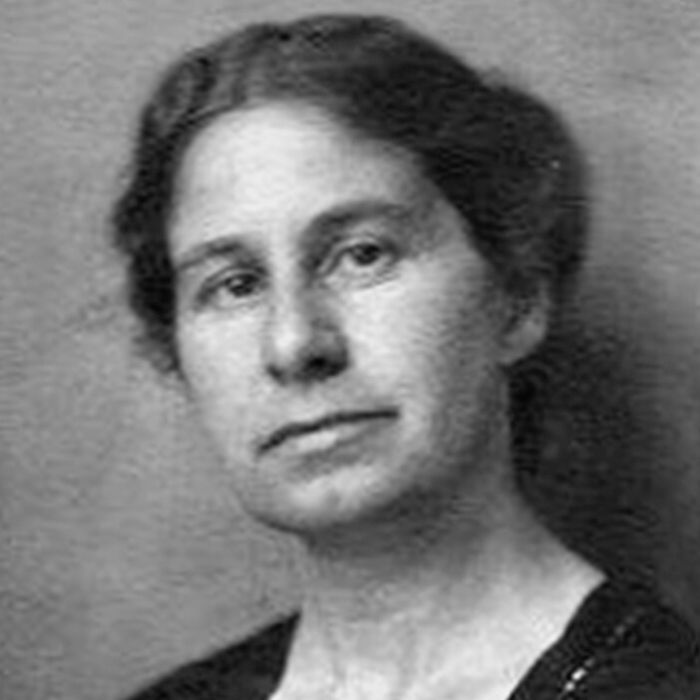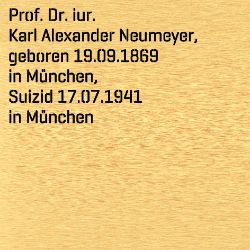Anna Hirschhorn was born on November 14, 1879 and grew up in a respected Jewish family in Mannheim. Her father owned a tobacco wholesale business; he also was a city councilor and was active in the National Liberal Party. In 1900 she married the lawyer Karl Neumeyer, who was ten years older, and moved with him to Munich. In 1901 their son Alfred was born; then came Fritz, in 1905. Since 1912 the family lived in Königinstraße 35 a. Anna Neumeyer became the “radiating force of the house,” as her friend Marianne Weber, wife of sociologist Max Weber, recalled. Thanks to her openness and sociability, Königinstraße 35 a became an important hub for men and women with liberal democratic leanings. In 1901 Anna Neumeyer joined the „Verein für Fraueninteressen“ (“Association for Women’s Interests”), which Anita Augspurg had launched two years earlier in order to advocate for women’s emancipation, equal rights, social compensation and suffrage. Between 1917 and 1928 Anna Neumeyer was a member of the association’s board. Anna Neumeyer was also active in the Deutsche Demokratische Partei (DDP, German Democratic Party) and led its women's group. In 1928, she resignedly withdrew from her official political work. Since the Nazi seizure of power, Anna und Karl Neumeyer were subjected to many repressive measures. When her husband was barred from visiting public libraries in 1937, Anna Neumeyer wrote to her friend Marianne Weber: “No one has volunteered to get books for my husband. He does not need them right now. It’s typical of the failure of everything humane, particularly in our circles. But how much beautiful humanity ordinary folk have shown!” The couple rejected the notion of emigration, although they could have gone to Sweden or the USA. Anna Neumeyer was convinced: “To leave with nothing is impossible. One must keep up one’s accustomed lifestyle, not become a beggar in old age just to stay alive.” On July 17, 1941 Anna and Karl Neumeyer committed suicide in their home at Königinstraße 35 a. (text Klaus Bäumer, editor C. Fritsche, translation T. Axelrod)






